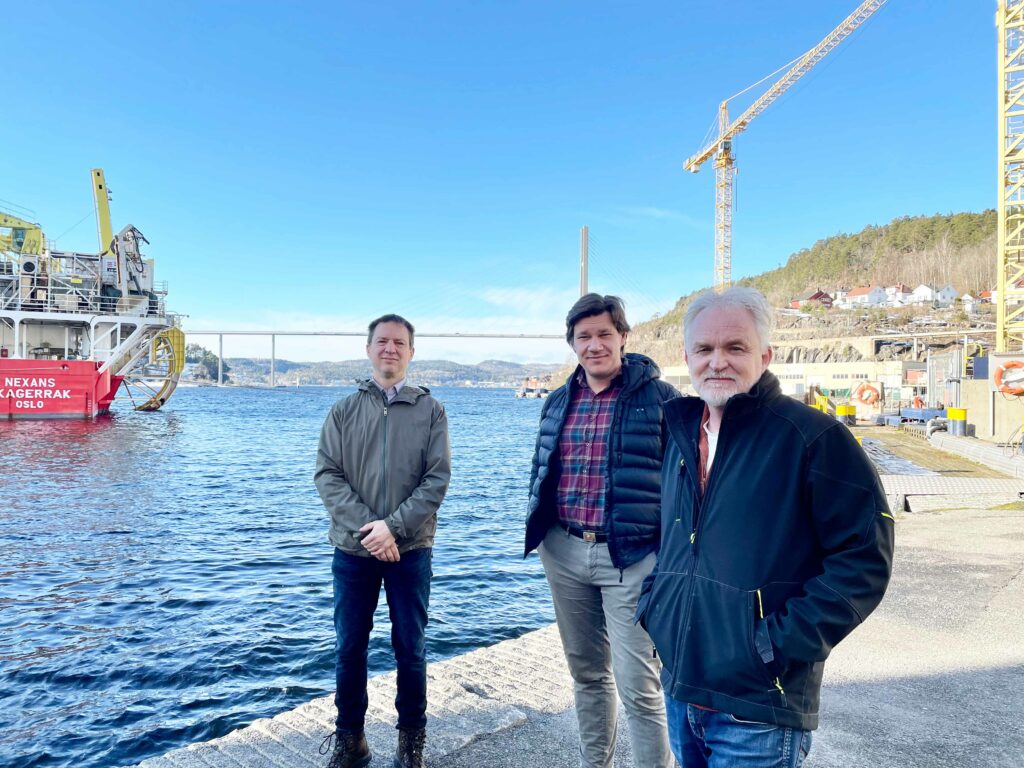– Unwanted invasive maritime species, such as “Sea Womit” and mussel colonies are a significant problem for both shipping and marine life. Through the research project Clean Sea Chest, Trosvik Maritime AS in collaboration with the the two local technology companies Sustaintech AS and Cathwell AS will develop a new technology that will be able to solve the problem in a more environmentally friendly and affordable way than today, says project manager and general manager of Trosvik Engineering AS Marius Øverland.
Photo: Edle Eidbo-Hansen
The project has a total investment framework of NOK 6 million and has recently been awarded NOK 3 million in grants from RFF – Regional Research Fund for the county of Vestfold and Telemark.
A global environmental problem The ambition in the project is to do something about a significant global environmental problem. Unwanted and invasive species can cause great damage to plant and animal life in the sea. An example is the «Sea Womit», or Japanese sea urchin, which is an alien species that reproduces and spreads rapidly and “suffocates” other life in the areas where it spreads.
Problems for both environment and shipping – The reason for the emergence of invasive maritime species is that spores of organisms attach and are transported via the ships hulls, pipes, cooling systems, ballast tanks, etc. When these spores, which can only be detected under a microscope, attach and grow, it is not just an environmental problem in the form of unwanted invasive species. It also poses a significant economic problem for shipping. Growth on the hull contributes to increased hull resistance and fuel consumption, while e.g. mussel colonies, seagrass etc. can clog coolers and pipe systems and cause reduced efficiency of the system’s machinery as well as large maintenance and repair costs, says Øverland.
Solid competence base The three collaborating companies in the project possess individually and together relevant and valuable expertise.
– Cathwell has more than 20 years of experience as a supplier of marine anti-growth systems (MGP systems) based on current technology. They have customers all over the world, and therefore possess a unique contact with and insight into the market. Sustaintech has developed a technology that kills antibiotic resistant bacteria in wastewater, and represents very important expertise in the project, while we at Trosvik Engineering have the maritime ship technical expertise needed, Øverland says.
We know that the technology is working – The technology we are developing is based on a form of chemical oxidation. We know that it works to kill the organisms, but not to what extent, the exact effect or what kind of scale conditions which are needed to make it work optimally for this purpose. This is what we are going to find out in the research project. We have identified expertise in nano-bubble technology as important for success in this project. Therefore, we have also joined forces with the company Noras Watertech AS, who has specialized in this area. In addition, we also have NIVA, the Norwegian Institute for Water Research, on the team, says Øverland.
Short way to market Trosvik has the overall responsibility in the project, including the construction of an outdoor lab in the bay of Trosvik. The first elements will be ready as early as the summer of 2022, while the research itself will be dependent on following the “growing season”. The goal is to build a functional unit that can be placed on board a ship next year. If this works well, we will in practice also have a “finished” product that can be replicated, scaled and commercialized. With i.a. Cathwell’s proximity to customers will thus be a short way to the international market, Marius Øverland believes.
